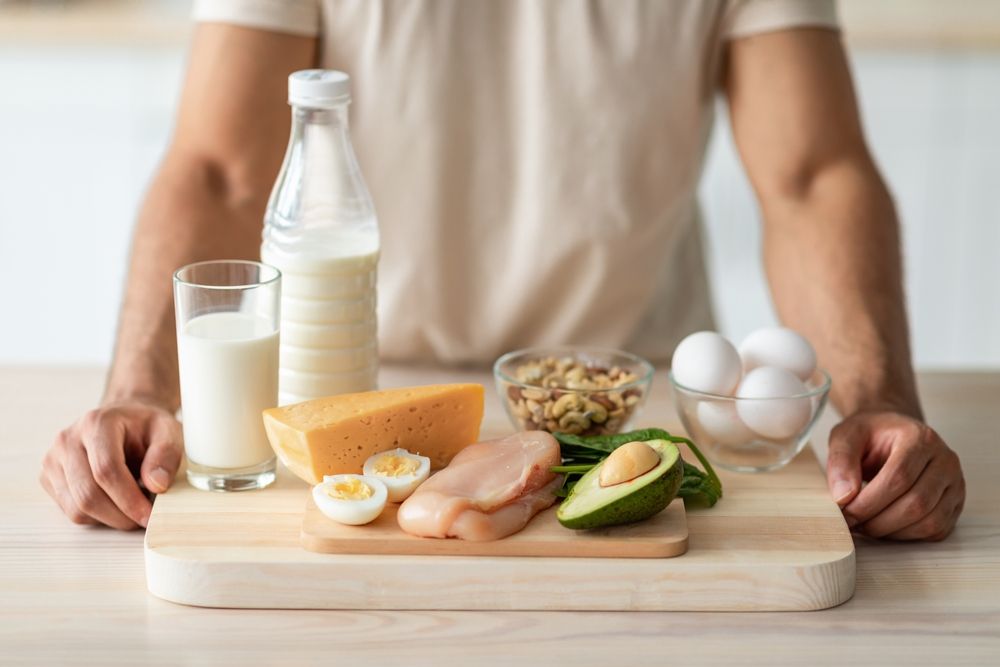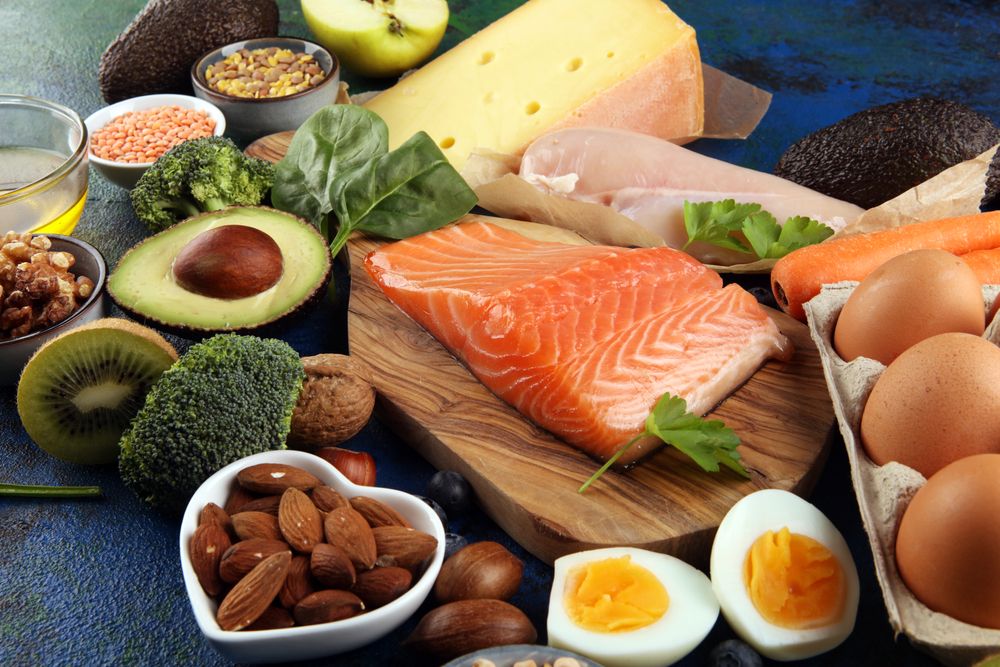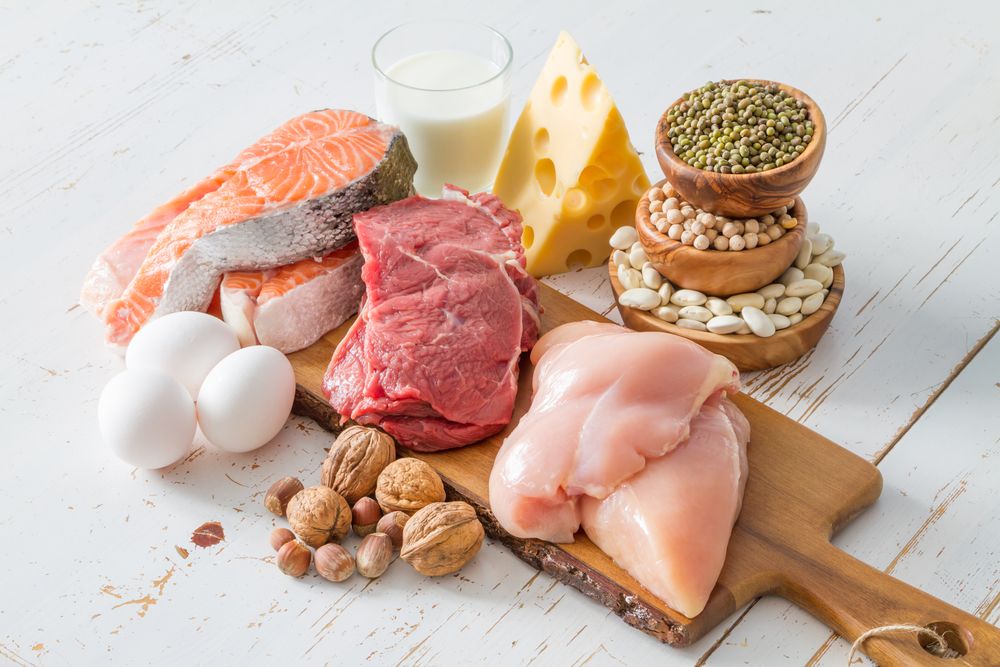
Protein is one of the four essential macronutrients that play a crucial role in keeping you satisfied, supporting muscle growth, and maintaining overall health. While your daily protein requirements can fluctuate based on factors like age and activity level, it’s important to understand the right amount to consume in one meal to avoid overburdening your body and potentially increasing the risk of health complications.
To determine the optimal protein intake per meal, we consulted with registered dietitian Gabrielle Tafur, RD, and Preventive Medicine Doctor Cedrina Calder, MD. They share their expert advice on how much protein you should consume per meal to ensure you're getting the benefits without overdoing it.
So, how much protein is excessive in a single meal? Here’s what the experts have to say. Keep reading to find out, and if you're interested, don't miss our guide on the 15 Best High-Protein Foods for Weight Loss.
What’s the Limit on Protein Intake Per Meal?

Both Tafur and Dr. Calder recommend limiting protein intake to around 30 grams per meal. Consuming more than this typically doesn't provide additional benefits and can place extra strain on your kidneys.
Unlike carbohydrates or fats, which the body can store for later energy use, protein lacks a storage system. Once your body absorbs the protein it needs, any excess is usually excreted through urine. "Protein is never stored, nor is it intended for immediate energy use," Tafur explains.
However, research indicates that while the body can't store protein, consuming more than 20-25 grams per meal isn't necessarily wasteful. Extra protein can still contribute to muscle growth, especially when it comes from slower-digesting sources like whole foods and is eaten alongside other nutrients.
For those focused on maximizing muscle growth, a good rule of thumb is to aim for about 20-40 grams of protein per meal, spread across four meals a day. Some individuals might benefit from higher intakes, but needs can vary based on goals and activity levels.
The Risks of Excessive Protein Intake
While protein is crucial for muscle building and satiety, overconsumption can lead to problems. Here are a few risks associated with high protein intake:
Kidney Strain: Unlike carbs, which can be stored as glycogen for quick energy, protein isn't stored in the body. Regularly consuming too much protein can overburden the kidneys, making it inefficient and potentially harmful over time. "Excess protein adds more work for the kidneys to filter, preventing protein build-up in the body," says Tafur.
Weight Gain: Consuming more protein than your body requires can also lead to weight gain. "The human body stores any excess calories as fat," Calder notes. "If a high-protein diet increases your daily caloric intake beyond your caloric output, you will gain fat as a result."
Digestive Issues: Overloading on protein, particularly from sources like red meat, can cause digestive problems such as constipation or bloating.
Maintaining a balanced protein intake within recommended limits helps you avoid these potential risks while still enjoying the benefits.
How Much Protein Should You Consume Daily?

The Dietary Reference Intake (DRI) recommends consuming 0.8 grams of protein per kilogram of body weight (approximately 0.36 grams per pound). If you're aiming to build muscle, this amount can rise to about 1.5 grams per kilogram of body weight, alongside a well-rounded diet.
For instance, a person weighing 140 pounds would require a minimum of 50 grams of protein daily, which could increase to around 95 grams if muscle building is the goal.
Protein needs may also be higher for older adults, those recovering from illness, and individuals with high levels of physical activity. Ultimately, the amount of protein you need daily varies based on individual factors.
Best Sources of Protein

Both Calder and Tafur agree that the best sources of protein come from whole foods. Some healthy examples include:
- Lean meats
- Fish
- Nuts and nut butters
- Seeds
- Unprocessed soy products
High-quality protein powders can also be a useful supplement to your diet. The best protein powders are plant-based and contain minimal preservatives and sweeteners. Plant-based powders typically provide up to 20 grams of protein per serving. You can blend a scoop of protein powder with oat milk, berries, and a handful of spinach for a nutrient-rich, protein-packed smoothie.
"Using protein powders is an effective way to help supplement your diet and ensure you meet your daily protein goals," says Calder. "However, it’s important to get the majority of your protein from whole food sources."
Key Takeaways: Avoid Overloading on Protein
Consuming more than 30 grams of protein in a single meal is generally unnecessary because your kidneys will process and excrete any excess. Essentially, trying to consume more protein than your body can use within an hour could mean wasting both nutrients and money, as the extra protein isn’t stored for later use.
The best approach is to distribute your protein intake evenly across your meals to ensure your body utilizes it efficiently. For instance, instead of having a protein shake with a large dinner, consider saving it for after your workout or as a mid-day snack. By managing your intake throughout the day, you can avoid the drawbacks of excessive protein consumption while still achieving your health and fitness goals.

